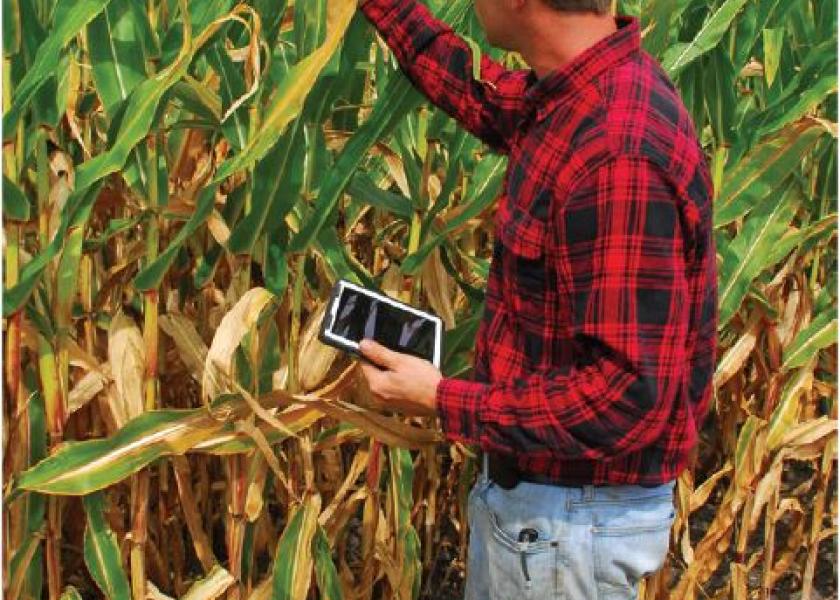Coach Better Pest Bosses

Without question, farms with a designated pest boss—the one person in charge of countering all crop threats—achieve better, more timely pest control, says Ken Ferrie, Farm Journal Field Agronomist. But all pest bosses are not equal.
“We can separate pest bosses by how well they keep records,” Ferrie says. “The best ones realize thorough record keeping is essential.”
More tools than ever can prepare farmers for excellent pest management plan execution. Here are 10 tips to share with farmers to maximize their pest management plans:
1 Record everything. “Every time a team member enters or observes a field, he must note what’s happening,” Ferrie says. “Even if everything is fine, it must be recorded.”
2 Don’t trust your memory. “I see pest bosses who keep all their records in their heads,” Ferrie says. “Some people have good enough memories to do that, but too often, there’s no record to fall back on when things go wrong.”
3 Take pictures of crop problems. Include photos, taken by people or drones, in your pest management plan. Documenting failures might be more important than recording successes, and pictures can do both. “It’s just as important to know where a herbicide failed as where it worked,” Ferrie says.
4 All team members must contribute. In many operations, the pest boss can’t visit every field in a timely manner, so scouting is done by team members, such as employees, retailers or consultants. Ferrie says the bigger the team, the more crucial record keeping is.
5 Build a pest management database. “Pest management records must cover multiple years,” Ferrie says. “Often, a threat will pop up, such as aphids or spider mites, triggered by weather conditions. You need to be able to check where it occurred in the past, how you treated it and how the treatment worked.”
6 Put technology to work. “A pocket notebook is still useful as long as you use it and make an entry every time you visit a field and then transfer that information to the master pest management plan,” Ferrie says. Some pest bosses carry a copy of the master plan to the field.
The past decade has unleashed an array of technology, starting with smartphones, that can make a pest boss more efficient and effective. “You can take notes and snap a picture and use the phone’s GPS feature to record the location of the threat,” Ferrie says. “You can send the information to your retailer or consultant, and he can go directly to the site and analyze the problem.”
7 Store data on the cloud. “Information collected by all pest management team members is transmitted instantly and logged together,” Ferrie says. “The pest boss has instant access to help make more timely treatment decisions without the need for a phone call or email.”
8 Choose software that fits your style. “Software programs range from simple to complicated and from cheap to expensive,” Ferrie says. “All can be used to manage in-season threats, monitor crops, review the season after harvest and make changes for next year.”
9 Put your information to work. Involving everyone in the post-season analysis keeps the entire team on its toes. “After harvest, sit down with your entire farm management team, and analyze yield maps,” Ferrie advises. “Yield maps are the scorecard of your growing season.”
10 Note the impact of weather. “Either record or be able to access data such as rainfall, evapotranspiration and sunlight [radiation],” Ferrie says. “As the season takes shape, you might want to look back in your records to the last wet or dry season to anticipate problems. Many pests are driven by climatic conditions.”







